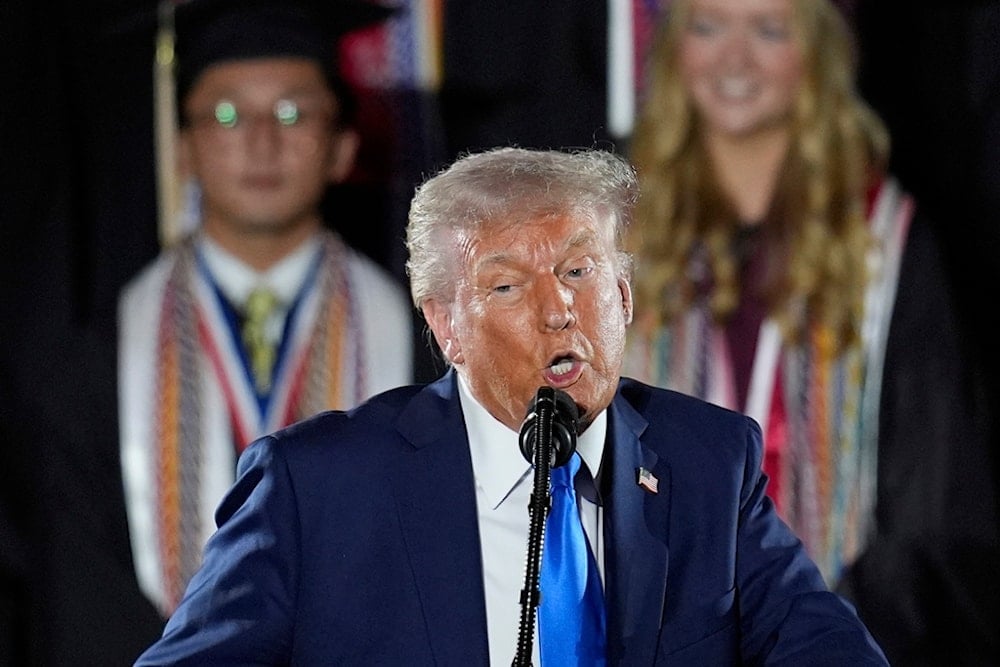Trump hints at possible US withdrawal from Ukraine peace talks
As hostilities continue, the US signals growing impatience with stalled Ukraine peace talks while deepening its long-term economic ties through a new mineral agreement.
-

President Donald Trump gives a commencement address at the University of Alabama, Thursday, May 1, 2025, in Tuscaloosa, Ala. (AP/Mike Stewart)
US President Donald Trump has signaled a potential shift in Washington's role in the stalled peace process between Russia and Ukraine, suggesting that the United States may eventually walk away from mediation if meaningful progress remains elusive. In an interview with NBC News aired Sunday, Trump expressed frustration with the ongoing conflict and the absence of diplomatic breakthroughs.
"Well, there will be time, when I will say: okay, keep going, keep being stupid, keep fighting ... There will be time when I may say that," Trump said. He added that while he has come close to making such a decision in the past, "positive things happen" that have stayed his hand.
Strategic recalibration
The remarks align with a broader recalibration in US foreign policy. State Department spokesperson Tammy Bruce stated on Friday that the US would no longer serve as the main mediator unless there is demonstrable movement from the warring sides. "We are not going to fly around the world at the drop of a hat to mediate meetings," she said, underscoring Washington's frustration with the diplomatic stalemate.
Vice President JD Vance reiterated that position, saying the US has already presented a comprehensive peace framework and that the onus is now on Kiev and Moscow to act.
At the same time, the US is reinforcing its economic partnership with Ukraine. On April 30, the Trump administration signed a major mineral resources agreement with Kiev, aiming to establish a joint Reconstruction Investment Fund and secure US access to Ukraine's valuable rare earths and other critical minerals. While symbolically significant, experts caution that the deal will not immediately offset China's dominance in the sector. Ukraine's refining infrastructure is underdeveloped, and many of its richest deposits lie in areas currently under Russian control. Nevertheless, the pact signals long-term US interest in Ukraine's economic future—even as its diplomatic patience wears thin.
Read more: Ukraine minerals deal no match for China's supply grip: SCMP
From the Kremlin's perspective, President Vladimir Putin said in January that Russia is open to negotiations but questioned Ukraine's legal ability to conclude any agreement. He argued that President Volodymyr Zelensky, whose term expired in May 2024, no longer holds the authority to represent Ukraine, and pointed to Kiev's existing decree banning negotiations with Russia as a key legal barrier.
Meanwhile, hostilities continue on the ground. Russia recently reported intercepting more than 100 Ukrainian drones over Crimea and the Black Sea region, evidence that the war is intensifying even as diplomatic channels dry up.
With both Washington and Moscow increasingly skeptical of the current diplomatic framework, and battlefield violence continuing to escalate, hopes for a near-term resolution appear bleak.

 3 Min Read
3 Min Read









